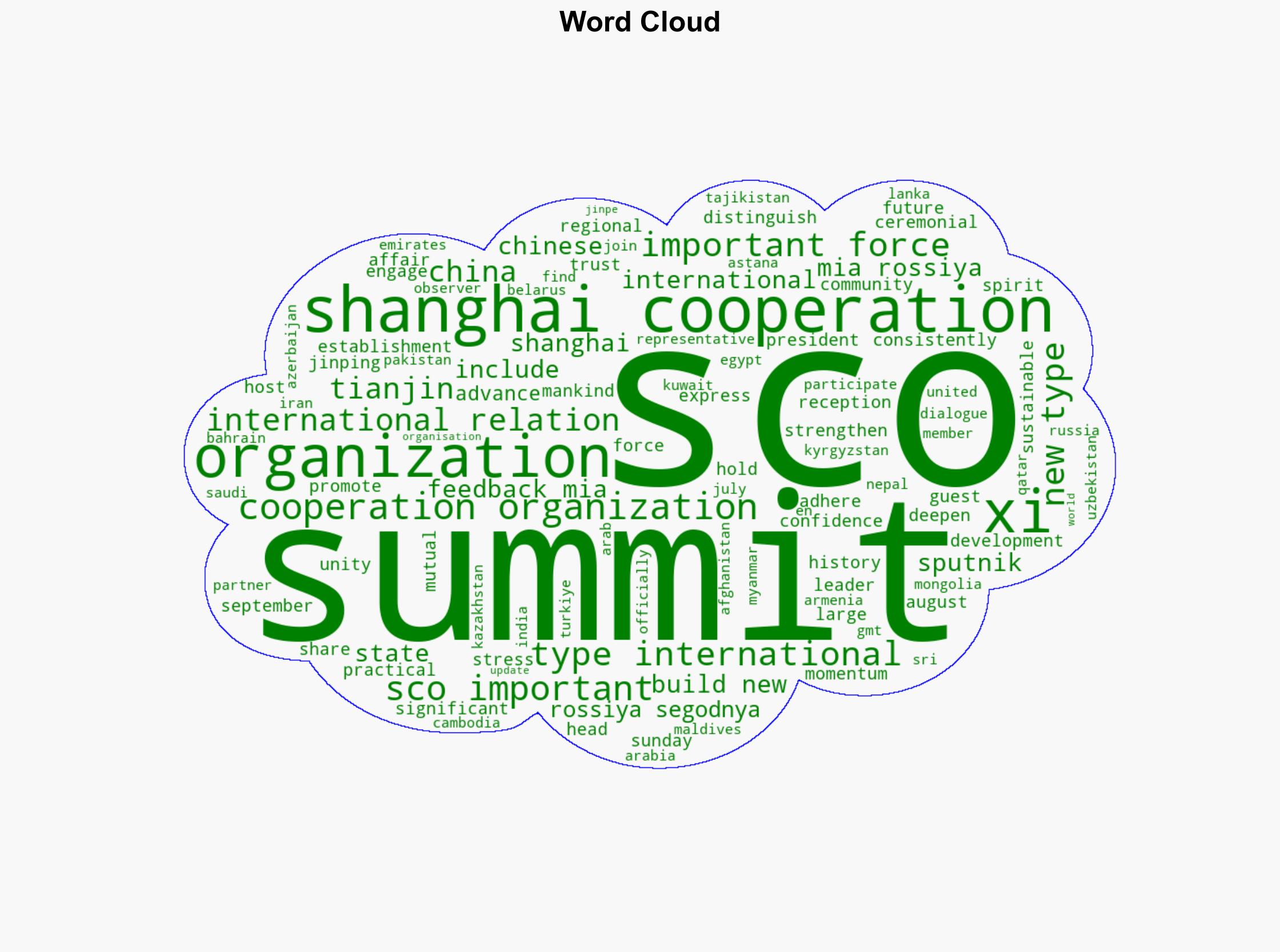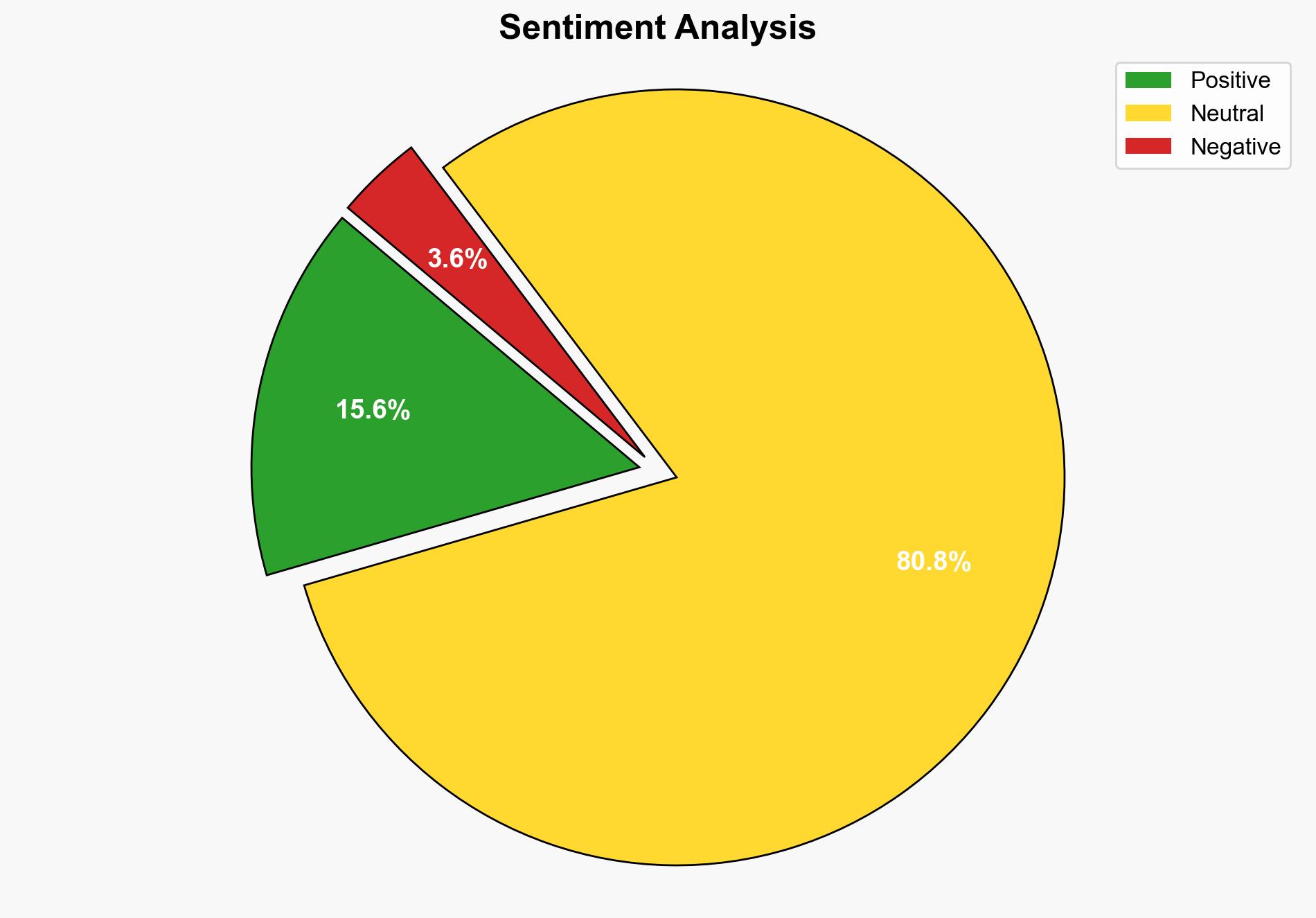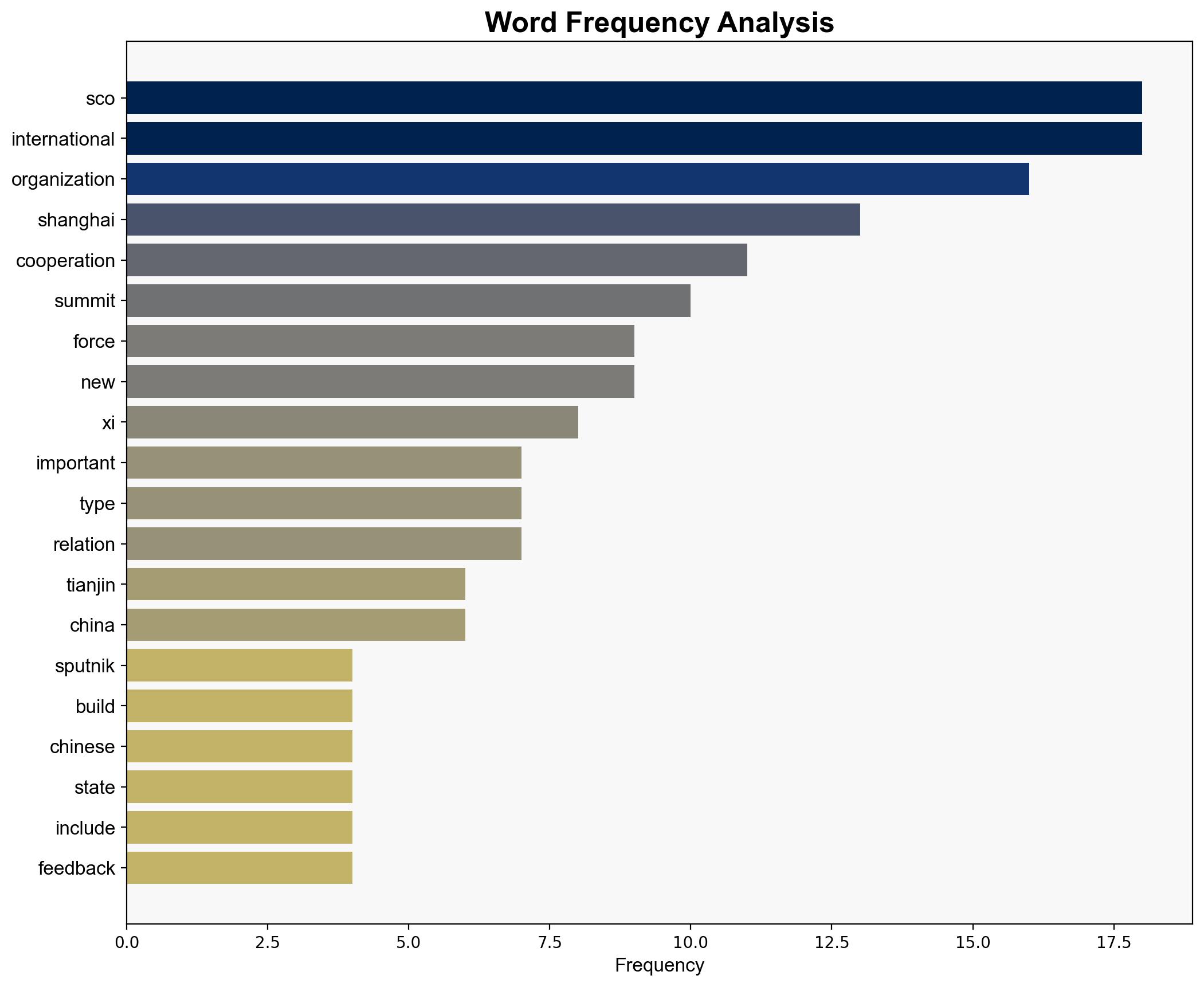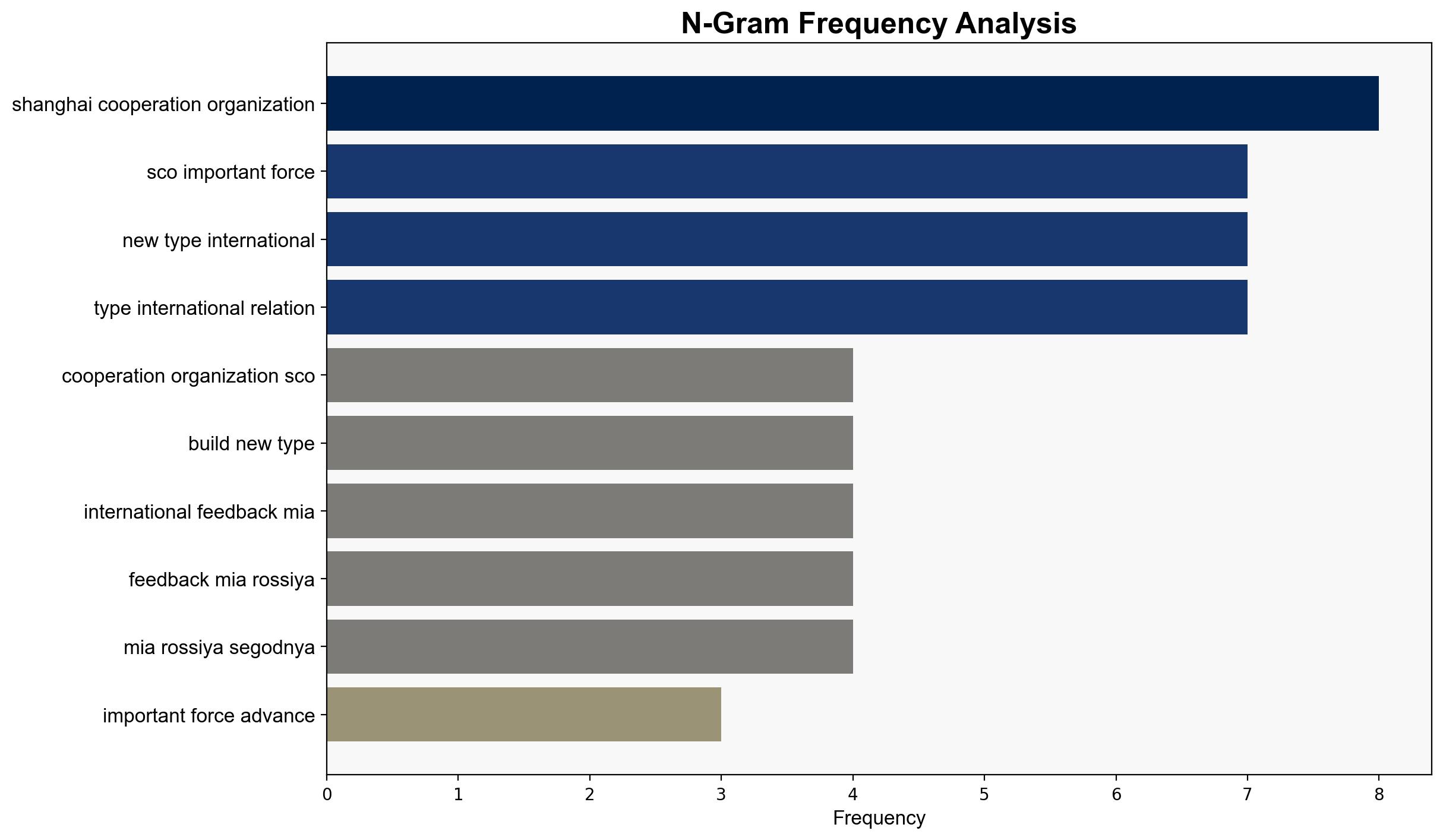SCO Has Become Important Force for Advancing New Type of International Relations Xi Jinping – Sputnikglobe.com
Published on: 2025-08-31
Intelligence Report: SCO Has Become Important Force for Advancing New Type of International Relations Xi Jinping – Sputnikglobe.com
1. BLUF (Bottom Line Up Front)
The Shanghai Cooperation Organization (SCO) is being positioned by China as a pivotal entity in fostering a new type of international relations, emphasizing unity and mutual trust. The most supported hypothesis is that China is leveraging the SCO to counterbalance Western influence and promote its geopolitical agenda. Confidence level: Moderate. Recommended action: Monitor SCO activities and member interactions to assess shifts in regional power dynamics.
2. Competing Hypotheses
1. **Hypothesis A**: The SCO is genuinely focused on promoting a new type of international relations based on mutual trust and cooperation, as stated by Xi Jinping, aiming to create a community with a shared future for mankind.
2. **Hypothesis B**: The SCO is primarily a strategic tool for China to expand its influence and counterbalance Western powers, using the guise of promoting new international relations to consolidate power among member states.
Using the Analysis of Competing Hypotheses (ACH) 2.0, Hypothesis B is better supported due to China’s historical use of multilateral organizations to extend its influence and the strategic importance of the SCO’s member states in terms of resources and geopolitical positioning.
3. Key Assumptions and Red Flags
– **Assumptions**: It is assumed that all SCO member states align with China’s vision of international relations. There is an assumption that the SCO’s stated goals are its actual objectives.
– **Red Flags**: The lack of specific examples of successful SCO initiatives fostering new international relations raises questions about the organization’s effectiveness. The potential for member states to have divergent interests is a blind spot.
4. Implications and Strategic Risks
– **Geopolitical Risks**: The SCO’s expansion and China’s leadership could lead to increased tensions with Western powers, particularly if the organization is perceived as an anti-Western bloc.
– **Economic Implications**: Enhanced cooperation among SCO members could shift trade patterns, potentially marginalizing non-member states.
– **Cyber and Psychological Dimensions**: The SCO’s focus on unity and trust could mask cyber operations or influence campaigns aimed at member states or external adversaries.
5. Recommendations and Outlook
- Enhance intelligence collection on SCO meetings and initiatives to identify shifts in policy or strategy.
- Engage with SCO member states to understand their individual motivations and potential divergences from China’s agenda.
- Scenario Projections:
- **Best Case**: The SCO fosters genuine cooperation and stability in the region, reducing tensions with the West.
- **Worst Case**: The SCO becomes a platform for anti-Western sentiment, leading to increased geopolitical tensions.
- **Most Likely**: The SCO continues to expand its influence, with China using it to subtly counterbalance Western power while maintaining a facade of cooperation.
6. Key Individuals and Entities
– Xi Jinping
– Shanghai Cooperation Organization (SCO)
– Member states: China, India, Iran, Kazakhstan, Kyrgyzstan, Russia, Tajikistan, Pakistan, Uzbekistan, Belarus
7. Thematic Tags
national security threats, cybersecurity, counter-terrorism, regional focus





